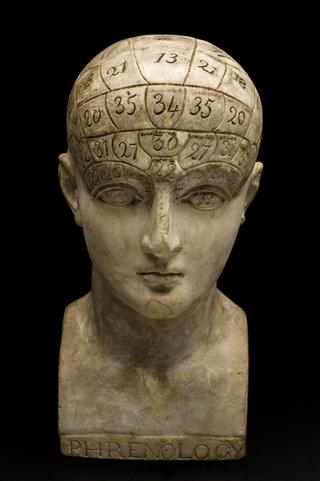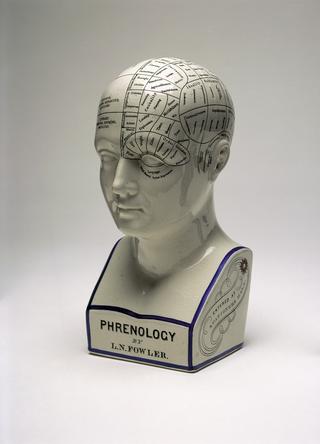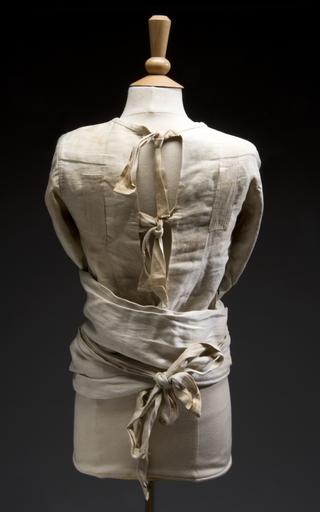
11 Motion study photographs showing ways to operate a hand press
- photographer:
- National Institute of Industrial Psychology


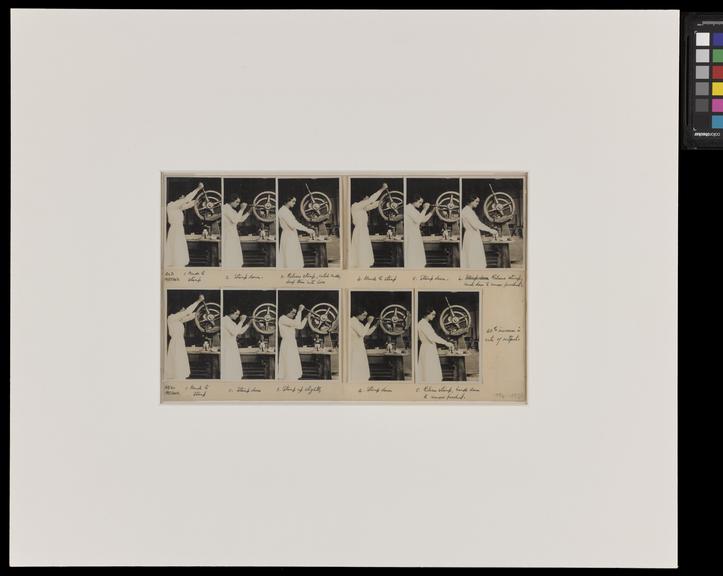
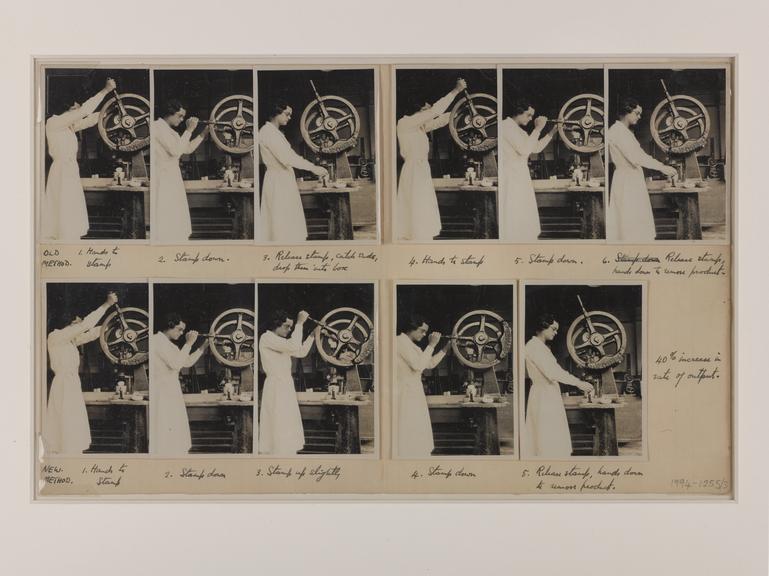
Eleven motion study silver gelatin print photographs (a series of six and series of five) mounted on a single sheet of paper showing `worse' and `better' ways for a woman to operate a hand press, 1920-1930.
Series of photographs, c1920-1930, showing two different ways of operating a hand press. The first sequence of six images shows the 'Old Method', while the second sequence of five images shows the more efficient 'New Method', which apparently increased productivity by 40 per cent. This is an example of the movement study carried out by the British National Institute of Industrial Psychology (NIIP). A variant of F W Taylor's time and motion study, it was more attuned to worker-sensitive issues such as fatigue, as well as employer concerns regarding productivity. Critics objected that scientific management techniques curbed the skill and initiative of workers, turning them into machines without agency in their activities.
Details
- Category:
- Psychology, Psychiatry & Anthropometry
- Object Number:
- 1994-1255/3
- Materials:
- paper (fibre product)
- Measurements:
-
overall: 200 mm x 240 mm
- type:
- medicine, chronoscopes, time and motion studies, industrial psychology, national institute of industrial psychology, photograph and silver gelatin print
- credit:
- British Psychological Society


